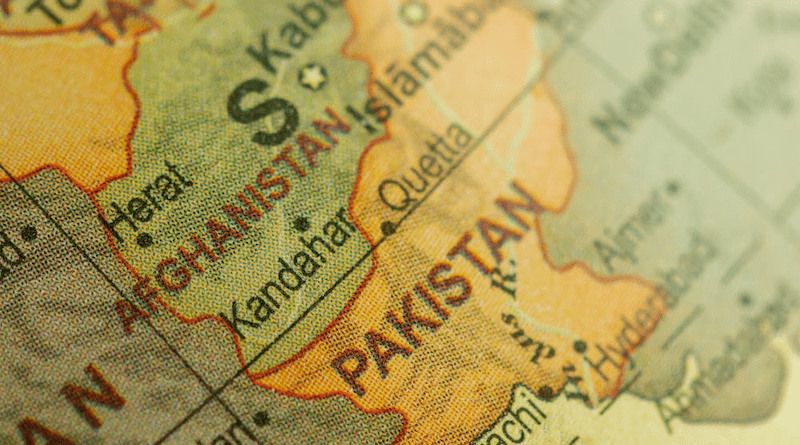Pakistan’s Decisive Security Outlook May Have Wider Implications – OpEd
Terrorism in Pakistan is a major security issue, Thus, Pakistan military is continuously and actively operating against terrorism as the DG ISPR outlined reflect the state’s determination to eliminate the security threats posed by extremism. The victory against Fitna al Khawarij with 59,775 operations and the killing of 925 terrorists in 2024 only speaks volume of the CT efforts of Pakistan. This paper aims to analyse the tactical angles of the war against terrorism in Pakistan, its impact and influence on regional safety, and part played by other actors in sponsoring terrorism. A Global Counterterrorism Strategy
The numbers provided by DG ISPR point towards a high operation density that as per them is 179 operations per day. This high-frequency engagement reveals that the Pakistani military is capable of learning new threats posed by terrorism. The killing of 73 high value targets, including the commander of Fitna al Khawarij, also follow operational efficiency and strategic accuracy. These successes are learnt with effective intelligence and surveillance systems, showing off newly built up counter insurgency capacity in Pakistan. Moreover, the dismantling of the terrorist’ networks in the context of the Malakand Division could be seen as one more evidence of Pakistan’s willingness to bring order in a region that has been long suffering from insurgency. These outcomes not only justify the operational capability of Pakistan but also boost the counterinsurgency strategy used by the state.
In fact the DG ISPR has blamed the terrorist networks of functioning from Afghan territory is a key factor to the narrative on secure regional stability. Currently, the increased instability in Afghanistan and the availability of the base for the activity of terrorist organizations is a major problem for Pakistan. Indeed, there is substantial information about the connection of Pakistani-based terrorists to these havens and there is a need of more coordinated counter-terrorism crusade in the region. The Pakistan’s demand to Afghanistan to give priority to bilateral relationship than having terror groups as their guests is a call for responsibility. That is why the state’s attitude is firm : it is dissatisfied with the relations that have been established and seeks to change them in order to reconsider regional interactions. A new Afghan policy could create cooperation in the South, assuring an increase of security and stability in the region. Mate, Pakistan choose strategic location as key aspect that increases the need for cooperation with partners in combating terrorism.
Organization Responsibility and Compliance with the Law One characteristic worthy of emphasis in Pakistan is that institutional accountability is integrated prominently into its counterterrorism polices. The case of Lt. Gen. Faiz also stands a symbol of the armed force’s internal judiciary system that functions independently of power. Besides, this particular system of accountability not only strengthens people’s confidence in the military but also establishes the rules of institutional obedience. Such transparency is a major essential element is building confidence among its domestic and international counterparts on the measures being taken to counter terrorism.
Thus, the success stories of counter terrorism in Pakistan has other bearing for safety and stability of entire South Asian region. Disarming of the terrorist networks also adds on regional security and by extension affects states in the region. However, due to the cross-boarding terrorism in Afghanistan, the set’ve been a challenge as far as the achievement of peace is concerned. Other potential research questions relate to the analysis of pressures put on Afghanistan by international actors of the country. The external forces in Afghanistan constantly fuel conflict which damages a collective effort towards cooperation in the region. The desire for autonomy in decision making and a clear break away from outside influences is Pakistan’s new approach of looking inward in the realm of security threats. This approach does not only serve the unity of the national security but also visions out sovereignty centered on regional integration than outside intervention.
First of all, Pakistan remains one of most committed countries in counterterrorism, which stands as a testimony to its war on radicalization. So, Pakistan has a broad operational perspective, institutional responsibility, and the strategy to deploy ‘_Trust in Neighbors_’ stress on regional integration that makes Pakistan crucial for the framework of South Asian security. Yet, the long-term stability can be achieved only within the framework of the collective regional security, based on the policies which exclude the strategic rivalry of outside players. Pakistan’s continuous efforts of establishing accountability internally, but also asking for responsible behaviours from a neighbour are also subject to portraying the complexity of security issues, as well as keeping the citizens and the region safe. The following efforts are applied in the counterterrorism, as have adopted a proper balance of the operational tighten and diplomatic think ahead strategies.

